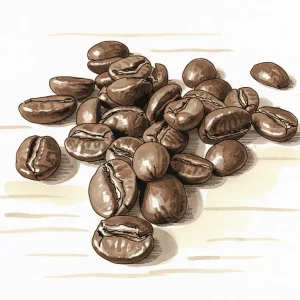Back to Black
Back to Black started as a neighborhood café and grew into a reference point for ethical specialty coffee in Amsterdam, with its own roastery, bakery and two living-room-like locations where single origin beans are lightly roasted and sustainability remains central to people-focused hospitality
Back to Black Beans
Showing 1–16 of 30 results
De goedkoopste prijzen per 1 kg worden weergegeven
-
Brazil – Cascavel Verde
€ 130,20 -
Brazil – Leandro Santos – Fazenda Boa Vista
-
Colombia – Anserma Cooperative
-
Colombia – Excelso EP
€ 148,60 -
Colombia – La Soledad
€ 50,50 -
Colombia – Los Patios
€ 71,35 -
Colombia – Sugar cane Decaf – El Dragón
€ 174,20 -
Ecuador – AsoAmazonas
€ 43,84 -
Ethiopia – Keramo
-
Ethiopia – Keramo Village
€ 112,00 -
Ethiopia – Queen Of Sheba
-
Ethiopië – Bombe Village ’22
More About Back to Black
Back to black, the essence
Back to Black opened on 19 July 2014 at Weteringstraat 48 in Amsterdam. The goal was simple, to put pure coffee back in the spotlight in a warm neighborhood spot. Ten years later, the name stands for much more than just an espresso; the brand is a reference point for quality and ethics in the Dutch coffee world.
With a small Giesen roaster, handcrafted décor, and even a swing bench in their second location, Back to Black shows that craftsmanship and playful design pair perfectly. The company chooses a people-centered approach, where every guest quickly feels at home.
From passion to mini-empire
Childhood friends Noortje Vlutters and Inge Bulthuis started the café out of love for craft and hospitality. In 2015 they installed a Giesen roaster in the basement to roast for themselves and gain full control over flavor. Today, Back to Black counts two cafés (by the Rijksmuseum and in Westerpark), plus its own roastery and bakery in Amsterdam-West.
The name points to the ‘third wave’ credo, back to coffee without additives, traded directly and artisan-roasted. Despite the growth, each shop still feels like a living room, with vintage furniture, art by local makers, and the familiar petrol-blue front door.
Roasting with vision
Back to Black roasts only single-origin beans in small batches. Each day two espressos are on the menu, one classic profile, often nutty or chocolate-rich, and one adventurous coffee with fruity or floral notes. The light roast profile preserves the delicate acids and aromas.
There is plenty of room for experiments. Recently an anaerobically fermented Indian natural appeared with a subtle tobacco note, as well as an Ethiopian with notes of bergamot. By constantly testing, the team sharpens its knowledge and serves coffees with strikingly fresh layers of flavor.
- Light roast profile for bright flavors
- Small batches for maximum control
- New origin almost every month
- Two espresso options for varied tastes
- Small batches for maximum control
- New origin almost every month
- Two espresso options for varied tastes
Unique coffee choices
Examples from recent line-ups show the range, a Brazilian coffee with chocolate and cherry notes, an Indian anaerobic natural lot with a hint of tobacco, and occasionally a floral Ethiopian. Because the roasters buy in small quantities, flavors disappear as soon as the last bag is emptied. This keeps the offering dynamic and seasonal.
- Filter coffee ranges from tropical fruit to pure cacao
- Micro-lots encourage regulars to taste new origin stories
- Seasonal selection keeps the menu lively
- Micro-lots encourage regulars to taste new origin stories
- Seasonal selection keeps the menu lively
Sustainability as a common thread
The company is known for reusable coffee buckets and compostable labels with water-based ink. Green electricity, eco-cleaners, and locally sourced milk from Lindenhoff underline a ‘conscious coffee’ approach. Even the bakery works with seasonal products to reduce waste.
- Re-use buckets instead of disposable bags
- Compostable labels with low VOC levels
- Compostable labels with low VOC levels
Direct-trade partnerships with, among others, This Side Up guarantee fair prices and transparency. Cuppings share origin information, so consumers know which farmer stands behind their cup. This model connects city and origin in a tangible way.
Women at the helm
Back to Black is one of the few female-led coffee roasteries in the Netherlands. Inge leads the roasting process and tastes every batch, while Noortje runs operations and teams. Their example shows that inclusivity and top quality can go hand in hand and inspires the next generation of coffee professionals.
Impact on the coffee scene
Public cuppings, barista workshops, and a permanent stand at the Amsterdam Coffee Festival make Back to Black an educational beacon. The welcoming vibe, complete with house cat Binkie, draws both local residents and international coffee geeks and strengthens the city's specialty community.
The team also supports local makers, from dairy farmers to illustrators. That collaboration creates a cycle of craftsmanship and creativity, which guests enjoy in the form of fresh cakes and unique tableware.
Outlook
In the coming years the focus will be on a growing subscription program, further sustainability, and additional training opportunities. New micro-lots, possibly from as-yet undiscovered regions, will keep the menu surprising. Growth will remain deliberate and step by step, so that passion, quality, and responsibility are preserved.
If Back to Black keeps this pace, it will set a new standard for small-scale, ethical coffee brands, driven by flavor, carried by community.


